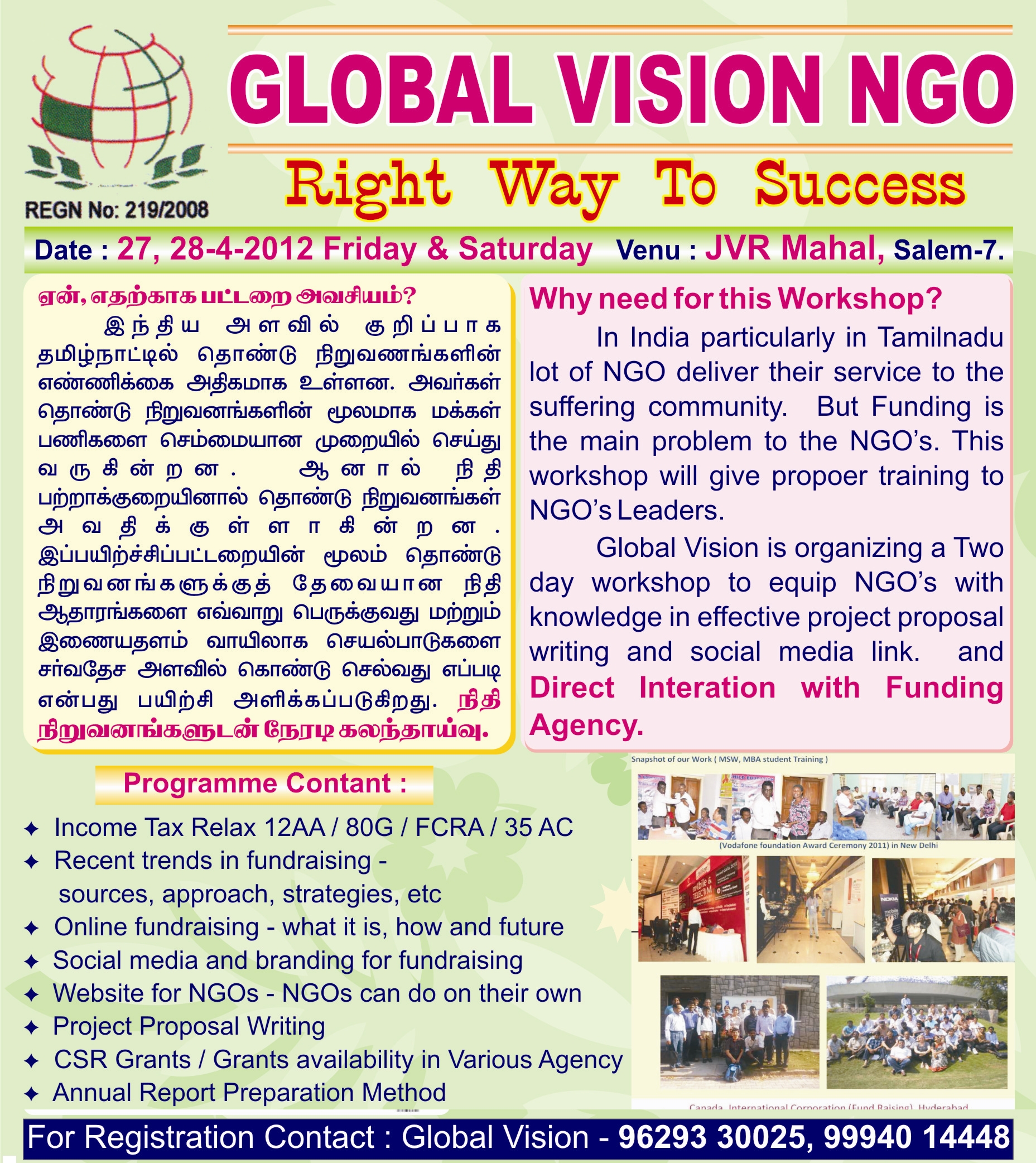/topics/equity
Equity
Septic tanks or death tanks! We need to improve sanitation facilities to eradicate the inhuman practice of manual scavenging
Posted on 05 May, 2012 03:18 PMAuthor : Gagandeep
“We have to end the biggest dehumanising activity called manual scavenging”
Occupational health hazards in sewage and sanitary workers - A paper published in the Indian Journal of Occupational and Environmental Medicine
Posted on 04 May, 2012 03:59 PMWorking conditions of the sanitory workers have found to remain unchanged over the years and pose a considerable risk to the dignity and health of the workers.
Microfinance institutions get away with farmer suicide abetment charges: Police close a third of the cases in Andhra Pradesh
Posted on 27 Apr, 2012 12:43 PMArticle Courtesy : Down to Earth
Author : M Suchitra
Global Vision NGO organizes two day workshop on effective project proposal writing and social media links in Salem, Tamil Nadu, 27- 28 April 2012
Posted on 24 Apr, 2012 10:20 AMArticle Courtesy : Global Vision NGO

Appointment of young professionals as Prime Minister's Rural Development Fellows - Some questions
Posted on 23 Apr, 2012 11:19 AMThe critics of the PMRDFS have already started asking questions as follows:
Conference on" Rural voices-Unheard to empowered", Institute of Rural Research and Development (IRRAD), May 3-4 2012, at Gurgaon
Posted on 23 Apr, 2012 11:06 AMOrganiser: IRRAD
Venue: IRRAD Auditorium
Plot No. 34,
Sector 44,
Institutional Area,
Gurgaon 122003
Haryana, India

The sanitation crisis in India - An urgent need to look beyond toilet provision
Posted on 18 Apr, 2012 12:14 PMGuest post by: Aarti Kelkar-Khambete
Image Courtesy: Wikimedia Commons
The sanitation crisis and the recent evidence on lack of toilet facilities
"Resources, tribes and the State" - A report on an international seminar, organized by the Arunachal Institute of Tribal Studies at Itanagar, Arunachal Pradesh, in February 2012
Posted on 11 Apr, 2012 04:10 PMGuest post by: Raju Mimi
The return of the earthworm: Association for India's Development's (AID-JHU) practicing organic farming in the Sunderbans
Posted on 08 Apr, 2012 10:51 PMArticle and Video Courtesy : Association for India's Development - Johns Hopkins University
Author : Nishikant





